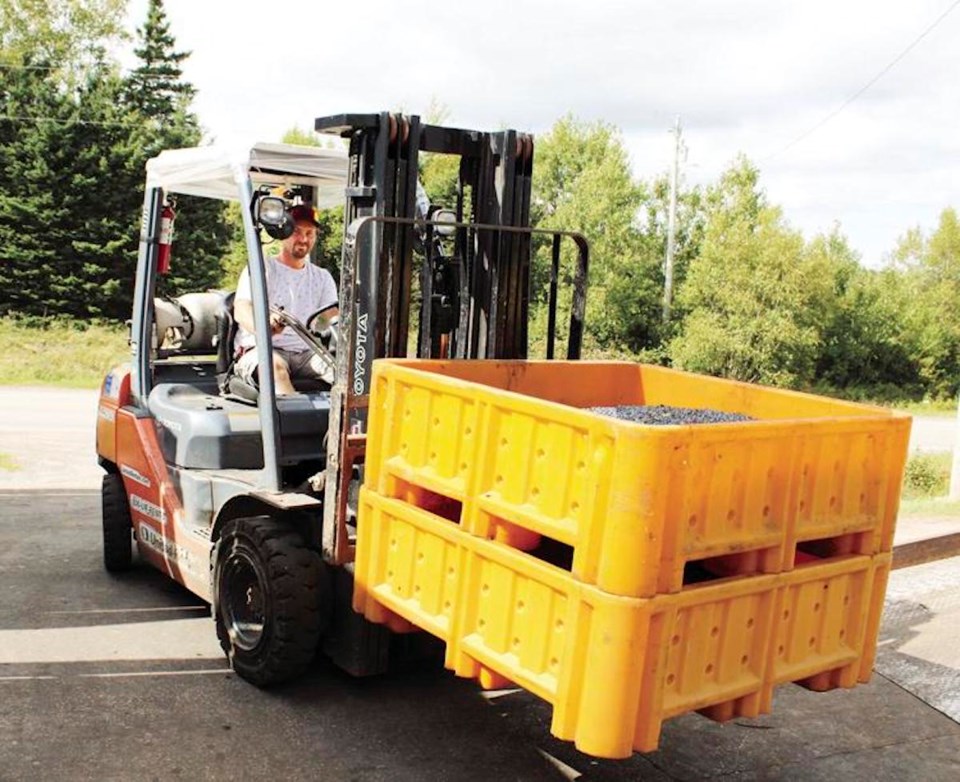A rainy August is pushing wild blueberry farmers into a race against Mother Nature to harvest crops before frost bites in September, all without knowing the price processors will pay for their crops.
“It’s been a pretty good season,” said Edwin McKie, one of about 120 Island growers. His fields stretch out in Howe Bay where he expects a mediocre yield. But precipitation has dampened productivity through the prime harvest window which starts in August.
He is still hopeful his crew can send the full haul to processors in Oxford, Nova Scotia before damaging cold weather settles in or he’s otherwise occupied with halibut season, which opens mid-September.
“Yields have been mediocre to poor,” grower Terrance MacDonald of Savage Harbour said. He farms 100 of the Island’s 14,000 acres of wild blueberries. He also puts his equipment to use harvesting for farmers across Kings County.
He suspects a few factors are at play: lack of pollinators - rain may have kept honey bees from working like usual during the key pollination period in early June - and fescue grass has been thriving in some fields, encroaching on plants’ nutrients and sunlight.
“Some fields on the north shore were just a write-off,” Mr MacDonald said.
Twelve of his acres there hardly budded. He heard from other farmers that some of their north side fields near the shore are in the same condition. He suspects unprecedented salt spray during Hurricane Fiona as the culprit.
Despite an underwhelming crop, Mr MacDonald is optimistic for next season.
He was able to treat half of his fields this year with a herbicide that targets fescue grass.
“It seems to have worked great,” he said. He is hopeful this treatment will improve yields in 2024.
John MacDonald of Souris Line Road has been farming wild berries since 1974 and his 500 acres seem to be yielding just below average this season.
But profitability is hinging on prices processors Jasper Wyman & Son Canada Inc in Morell and Oxford Frozen Foods in Nova Scotia will set in the coming weeks.
Joanne Pineau is general manager of the PEI Blueberry Growers Association.
“Last year we saw the highest or second highest yields in the past 10,” she said, speaking about the industry as a whole, which spans across the Maritimes, Quebec and Maine.
If processors and vendors are dealing with leftover supply, this could influence a drop in prices.
On the flip side, demand for wild blueberries has increased in past years and low yields this season are not unique to PEI. The industry at large seems to be on track for a below average harvest. All of this could help balance the price.
Association president Benny Nabuurs said farmers would generally need to receive about 50 cents per pound or more to break even. Chatter within the industry, according to several growers, has forecast prices to land closer to 35 cents compared to 70 cents in 2022 and 80 cents the previous year.
The Graphic contacted processors Wyman’s and Oxford Frozen Foods for comment but did not hear back by press time.




